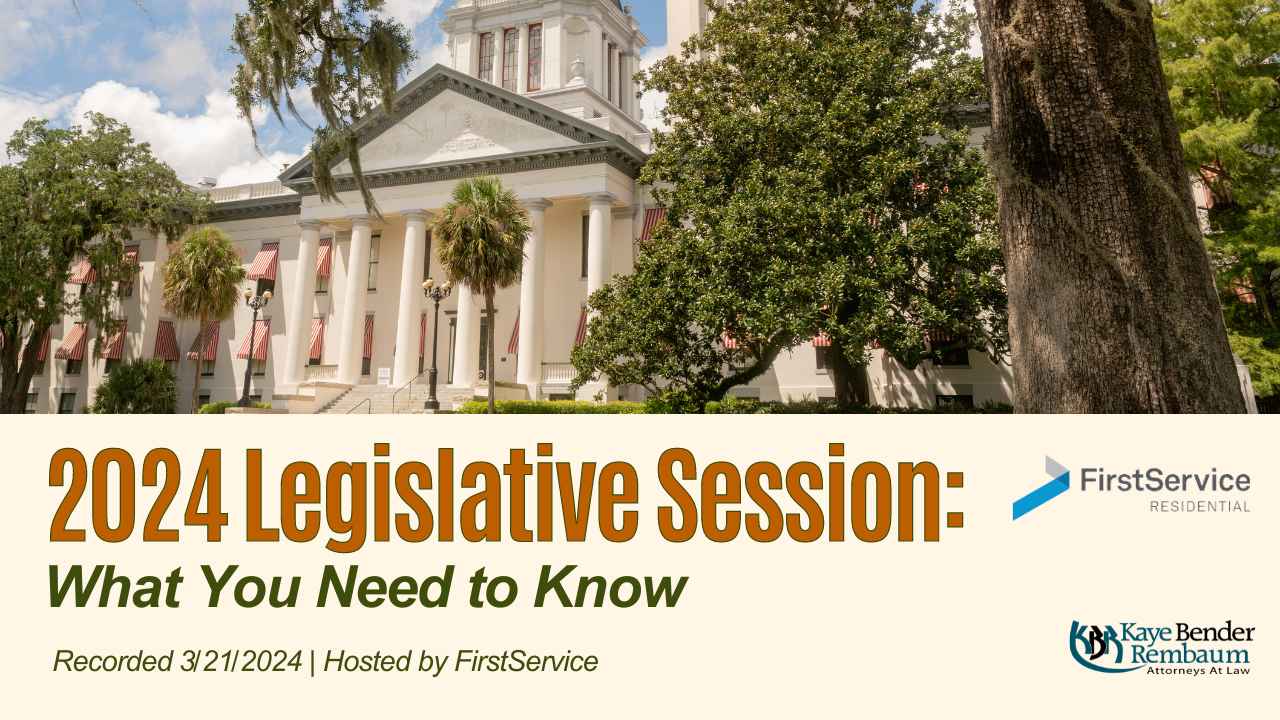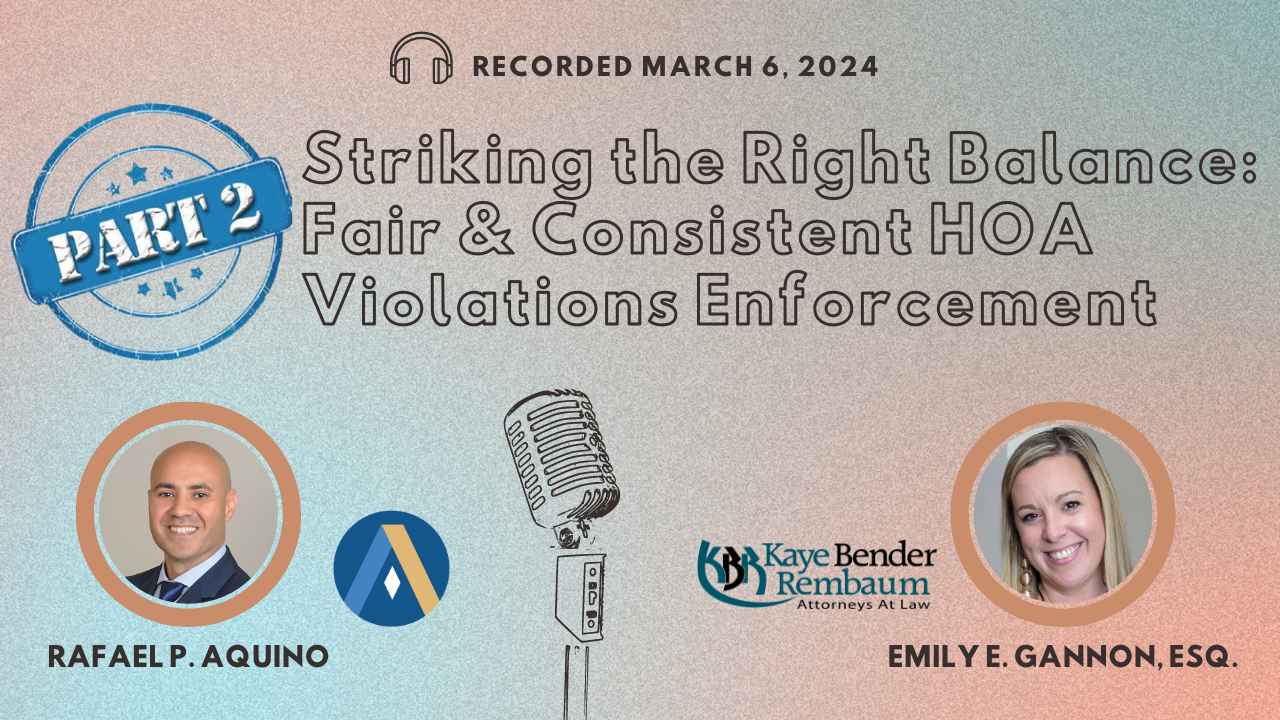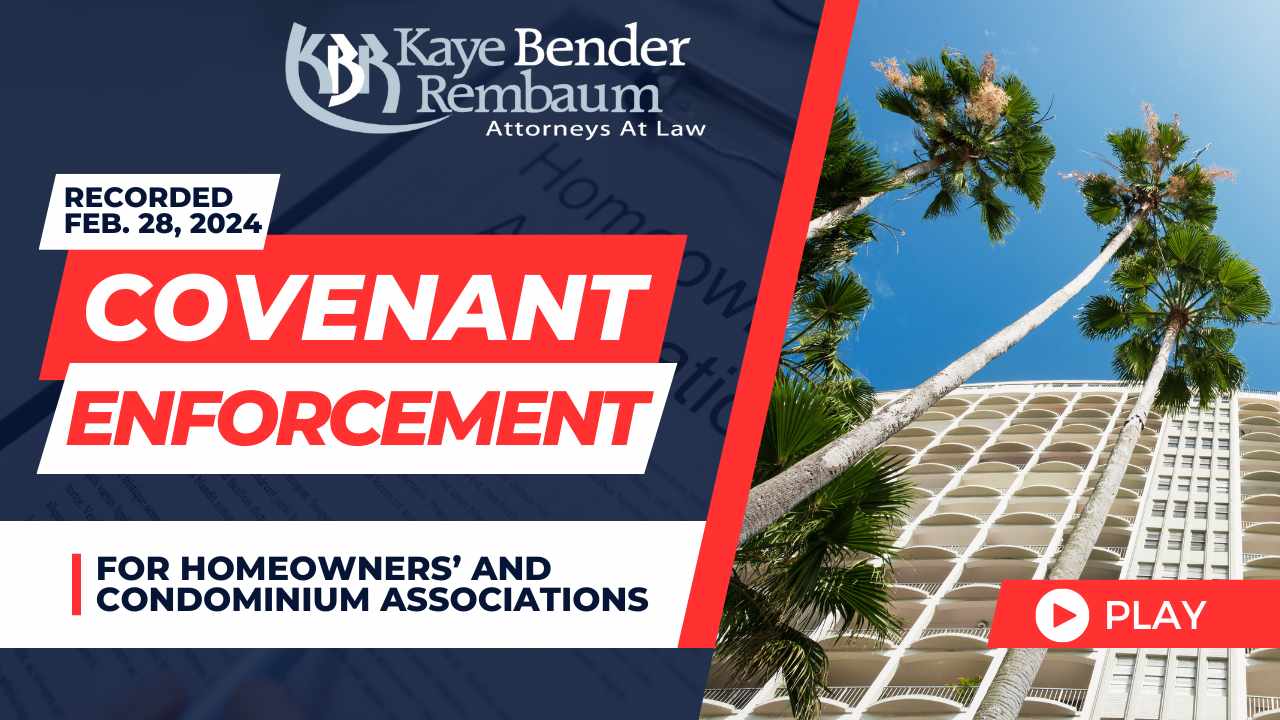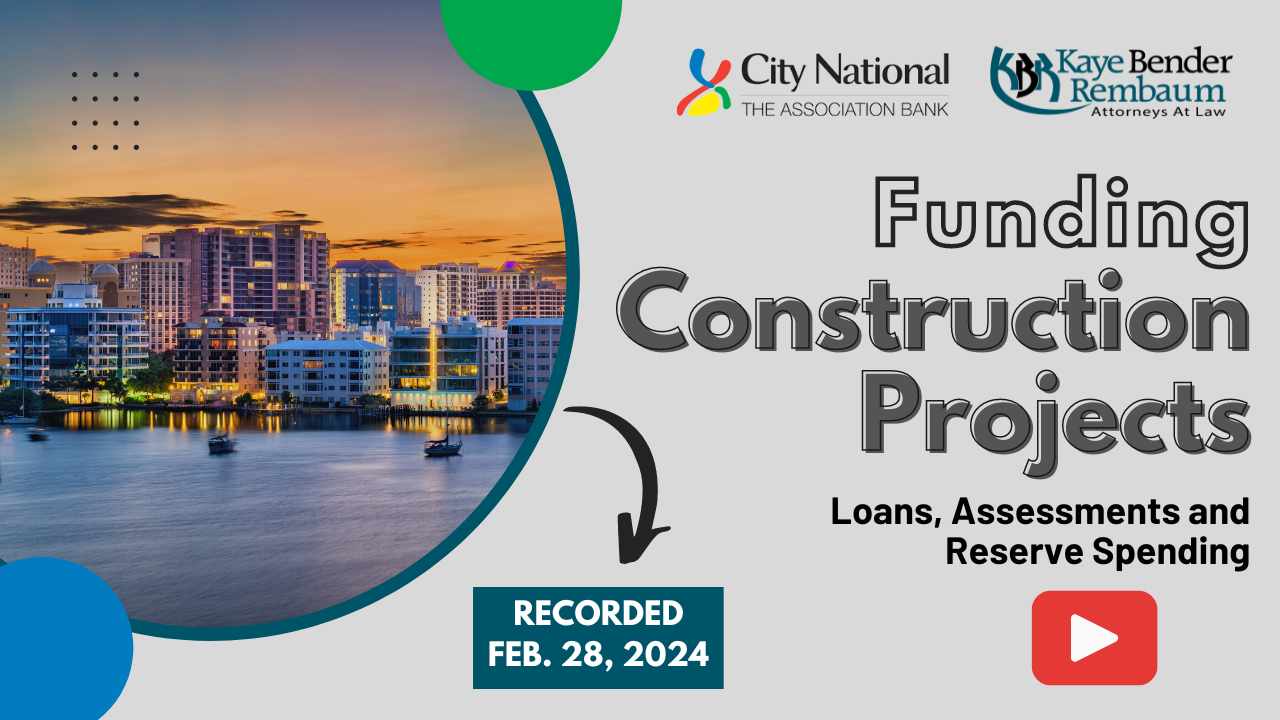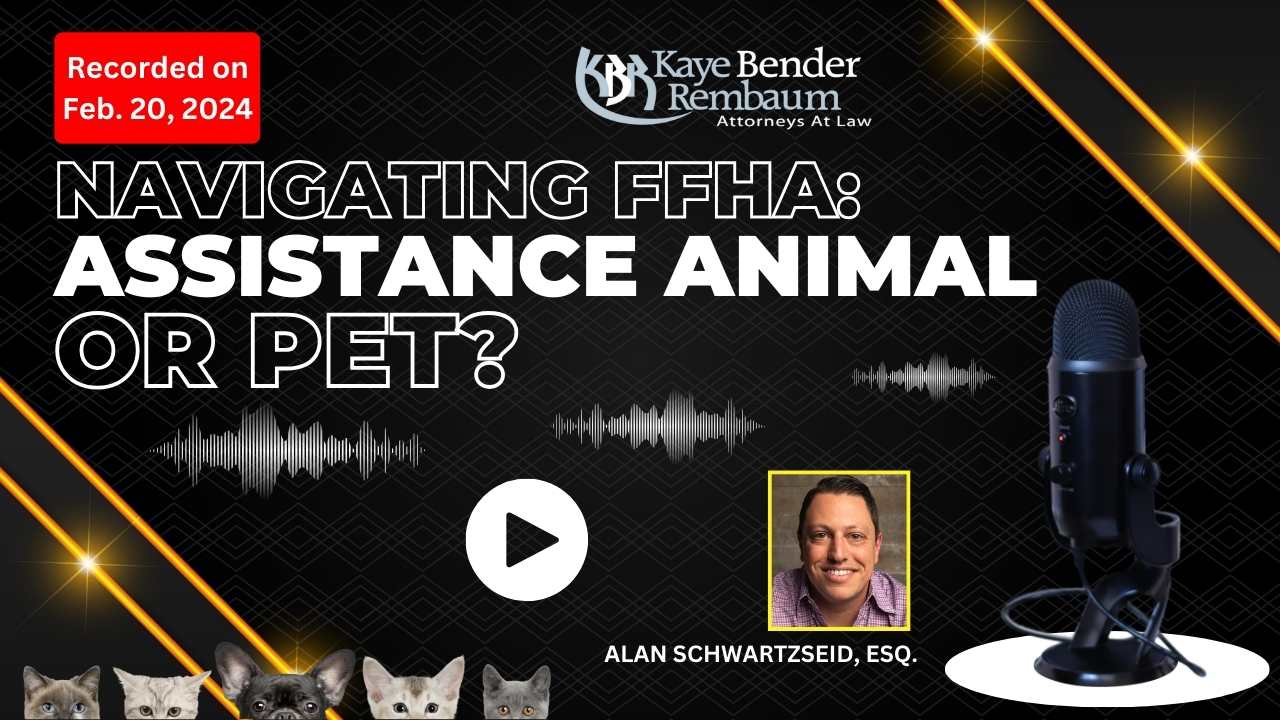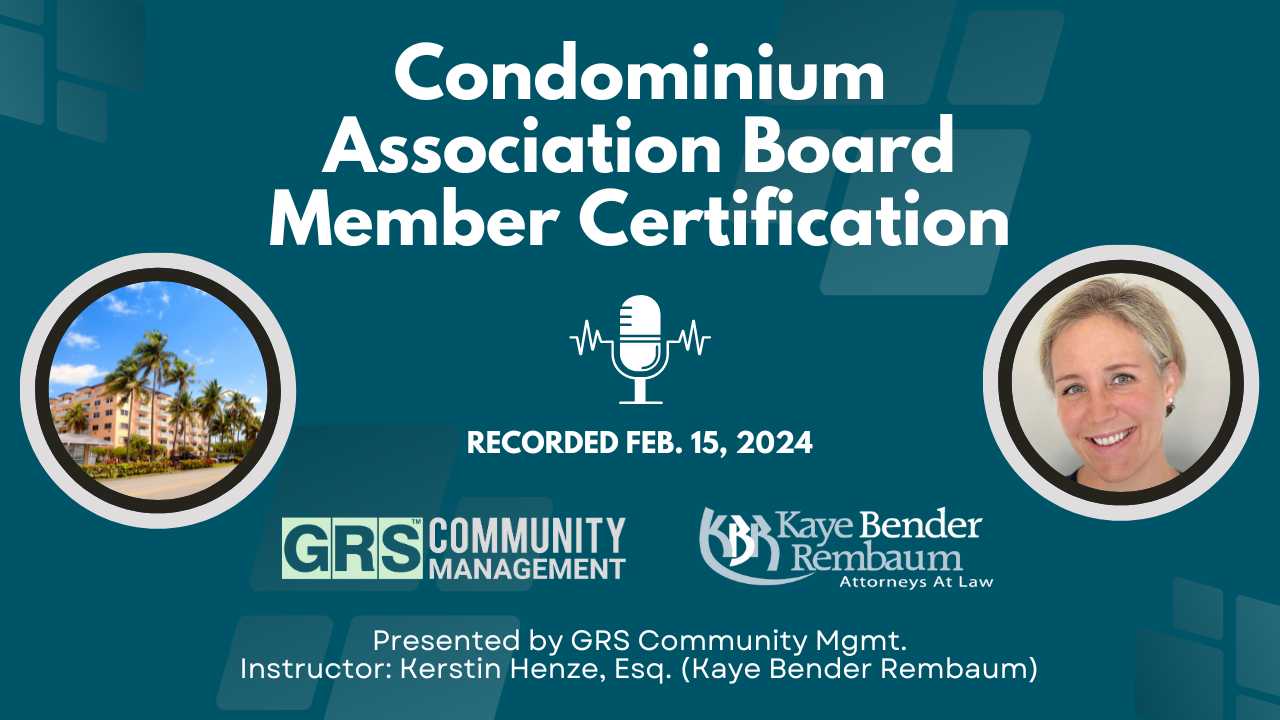**Important** Viewing this on-demand video WILL NOT satisfy Florida state requirements for new Board Members; NOR will this recorded version offer CEUs for CAMS. It is for informational purposes only and is not to be considered as legal advice. Should you have any questions, contact your association counsel.
Hosted and presented by FirstService Residential.
A recording of their webinar, 2024 Legislative Session: What You Need to Know, where their panel of legal experts will discuss new and updated laws passed during Florida’s 2024 legislative session. We’ll examine legislation related to: • Vacation rentals • Condo and HOA reform • Estoppel certificates • Property insurance • And more!
Guest speakers include: Jeffrey A. Rembaum, Esq. BCS (Kaye Bender Rembaum)

